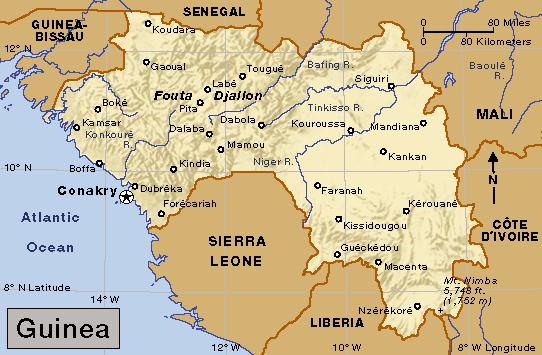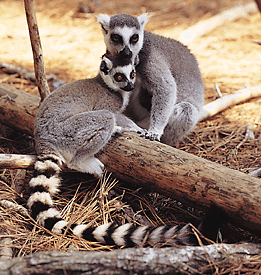Ebola Epidemic Advances in West Africa
Monday, July 28th, 2014July 28, 2014
The worst recorded epidemic of the deadly and highly contagious Ebola virus led the West African nation of Liberia today to close most of its border crossings. Liberia is one of three nations, along with Sierra Leone and Guinea, that are being hard hit by the virus. Liberia’s President Ellen Johnson-Sirleaf also issued restrictions on public gatherings and said areas hit by the virus could be quarantined. The current outbreak of Ebola hemorrhagic fever, which began in March in southern Guinea, has killed at least 670 people, including the Liberian doctor who was heading his country’s efforts to contain the epidemic. Yesterday, Nigeria’s Arik Air suspended all flights into Sierra Leone and Guinea after Nigerian officials confirmed the first Ebola death in Lagos, Nigeria’s capital and the most populous city in Africa. Meanwhile, medical workers in Guinea were meeting hostility and resistance from residents who blamed them for spreading the disease.
Ebola hemorrhagic fever is characterized by massive internal bleeding as well as diarrhea and vomiting. It is spread by direct contact with such bodily fluids as saliva and blood and by contact with towels and other objects cotaminated by the virus. While animals, including chimpanzees and gorillas, can transmit the virus, the natural source is unknown. There is no cure or vaccine for the disease. Symptoms appear within 5 to 10 days of infection. About 80 to 90 percent of all people who become infected die, though patients who receive treatment while in the early stages of the disease have a slightly better chance of recovery. Treatment consists mainly of rehydration to replace lost body fluids.

The current Ebola outbreak began in southern Guinea in March and has spread to Liberia and Sierra Leone. (World Book map; map data © MapQuest.com, Inc.)
As of July 20, Ebola had killed 454 people in Sierra Leone; 314 in Guinea; and 224 in Liberia, according to the World Health Organization (WHO). Forty-five cases, including 28 deaths, were reported in those three countries between July 18 and 20 alone.
Most hemorrhagic viruses have a host, often a rodent or insect, which carries the virus but does not become ill. Scientists have not yet identified the host for the Ebola virus. However, the bushmeat trade is highly suspected of spreading the virus among people. The WHO has warned people against eating raw bushmeat and avoiding contact with infected apes, bats, and monkeys.
Additional World Book article:
- Disease Detectives (a special report)
- The Origin of New Diseases (a special report)



